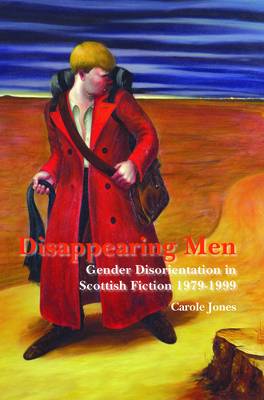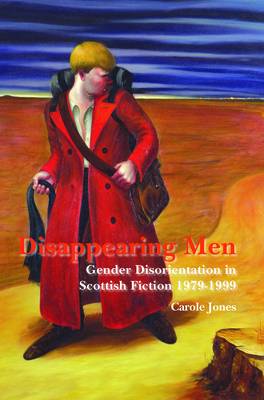
- Afhalen na 1 uur in een winkel met voorraad
- Gratis thuislevering in België vanaf € 30
- Ruim aanbod met 7 miljoen producten
- Afhalen na 1 uur in een winkel met voorraad
- Gratis thuislevering in België vanaf € 30
- Ruim aanbod met 7 miljoen producten
Zoeken
Omschrijving
Disappearing Men examines the complex and rebellious representations of gender in the work of several writers of 'devolutionary' Scottish fiction in the period 1979 to 1999. The study focuses on the context of a 'crisis in masculinity' accompanying the rapidly changing male role in the period, concluding that men often disappear from sight in this writing, highlighting issues of male insecurity and female disorientation in a new gender landscape. Hence the novels examined here by authors James Kelman, Jancie Galloway, Jackie Kay, A.L. Kennedy and Alan Warner, strongly challenge the stereotype of the Scottish 'hardman' and his dominance in 20th century Scottish fiction. Disappearing Men dissects this challenge by giving major consideration to the relationship between the innovative literary forms often found in this writing and the concepts of selfhood they give rise to. The possibilities inherent in these texts of reimagining gender identity and relations make them important contemporary documents of our struggles with realising selfhood and relations with others. A sustained and intimate analysis, this monograph will be of crucial interest to those concerned with issues of gender and representation in our rapidly changing era.
Specificaties
Betrokkenen
- Auteur(s):
- Uitgeverij:
Inhoud
- Aantal bladzijden:
- 208
- Taal:
- Engels
- Reeks:
- Reeksnummer:
- nr. 12
Eigenschappen
- Productcode (EAN):
- 9789042026988
- Verschijningsdatum:
- 1/01/2009
- Uitvoering:
- Paperback
- Formaat:
- Trade paperback (VS)
- Afmetingen:
- 155 mm x 234 mm
- Gewicht:
- 299 g

Alleen bij Standaard Boekhandel
+ 207 punten op je klantenkaart van Standaard Boekhandel
Beoordelingen
We publiceren alleen reviews die voldoen aan de voorwaarden voor reviews. Bekijk onze voorwaarden voor reviews.








